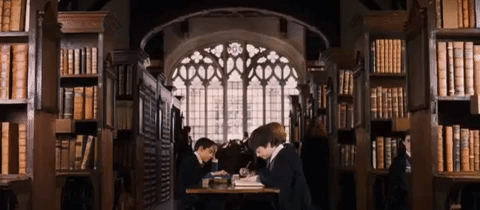
Wednesday, September 18
What Are We Doing Today?!
-
Today's Goals
-
Warm Up
-
Reading Discussion
-
Homework

Today's Goals
Learning Outcomes
-
Demonstrate their ability to locate, read, evaluate, select and use (integrate) effectively information from appropriate sources with their own ideas
Key Terms
-
Research as Learning / Information Literacy
-
Reflection, metacognition, transfer/expansion
Habits of Mind
-
Persistence is fostered when writers are encouraged to commit to exploring, in writing, a topic, idea, or demanding task.
-
Curiosity is fostered when writers are encouraged to conduct research using methods for investigating questions appropriate to the discipline.
Reading Discussion
Reading:
Framework for Information Literacy's "Scholarship as a Conversation"
Groups:
Each group needs to discuss the importance of their assigned sections. Pick at least one quote and example to discuss with the class. Add group notes to the Google running document!
Group A:
-
How might the knowledge practices (research activities) help one cultivate a more reflective consumption of information? Pick 2.
-
For example, how might summarizing "the changes in scholarly perspective over time on a particular topic within a specific discipline" change the way one consumes information? How does this activity make the researcher a more critical/skeptical/adept consumer of information?
-
Group B:
-
How might the knowledge practices (research activities) help one cultivate a more reflective consumption of information? Pick 2.
-
For example, how might summarizing "the changes in scholarly perspective over time on a particular topic within a specific discipline" change the way one consumes information? How does this activity make the researcher a more critical/skeptical/adept consumer of information?
-
Group C:
-
How might the dispositions (ways of thinking) help one cultivate a more reflective consumption of information?
-
For example, how might recognizing that one is often "entering into an ongoing scholarly conversation and not a finished conversation" change the way one consumes information? How does this make the researcher a more critical/skeptical/adept consumer of information?
-
Group D:
-
How might the dispositions (ways of thinking) help one cultivate a more reflective consumption of information?
-
For example, how might recognizing that one is often "entering into an ongoing scholarly conversation and not a finished conversation" change the way one consumes information? How does this make the researcher a more critical/skeptical/adept consumer of information?
-
Group E:
-
"Information literacy is the set of integrated abilities encompassing the reflective discovery of information, the understanding of how information is produced and valued, and the use of information in creating new knowledge and participating ethically in communities of learning." (FIL 3)
-
break down this quote and explain it in your own words
-
connect an example to the Connecting the Past to the Present IA
-
Think of how this connects to our previous reading discussions...
Homework
B) Read for Wednesday 9.25
-
NWWK TC 3.0 (p. 48-50) "Writing Enacts and Creates Identities and Ideologies" [re-read]
-
FIL "Authority is Constructed and Contextual" (p. 4) [re-read]
-
NWWK TC 1.1 "Writing is a Knowledge-Making Activity" (p. 19-20)
C) Looking Ahead:
-
Discovery Log #3 is due this Sunday (9.22) by midnight.
-
Portfolio Practice #2 due this Sunday (9.22) by midnight.
